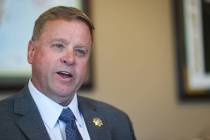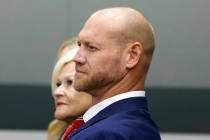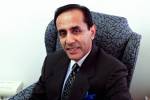Mobile apps improve care
Want to take a slew of exercise videos on that business trip or have a pocket-size personal trainer at your beckon call 24/7? How about a mini sleep center that analyzes your sleep cycle and wakes you up when you're supposed to be the most refreshed?
Just download an app to your smartphone or iPad, and there you have it: instant mobile health.
There are thousands of mobile health care applications geared toward consumers interested in monitoring, improving, learning more or simply feeling better about their health - and the market just keeps growing.
According to research2guidance, a market research firm specializing in mobile technology, the U.S. smartphone application market for mobile health care is expected to reach $1.3 billion this year, up from $718 million in 2011. The company also noted that the number of consumers downloading mobile health, or mHealth, apps on their smartphones at least once is expected to nearly double this year, from 124 million in 2011 to 247 million.
But the world of mobile health goes well beyond issues such as exercise and calorie intake. In fact, clinicians such as physicians, nurses and pharmacists, as well as medical centers and teaching institutions, are embracing the technology in growing numbers as a way to improve the efficiency of medical care through some pretty sophisticated software, according to experts.
"I guess at one time people thought this might be a fad, you know, hey there's smartphones coming out and it's just going to stick around and then kind of go away," said Timothy Aungst, a doctor of pharmacy, and writer and reviewer for the online publication iMedicalApps. "But here we are in 2012, and you look at the iTunes store and there's over 12,000 medical apps, you look at the Google Play store and there's over 5,000 medical apps alone and those are just medical-related apps, they're not even health care-related apps."
Aungst, a member of a geriatric fellowship who does a lot of community outreach work, uses his drug reference apps on a daily basis, he said. There are times, for example, he will see patients who have their pills but don't have the prescription bottles they came in. All he has to do is type in characteristics of the pill such as color, shape and any inscriptions, and the medication will be identified.
He has a total of about 10 apps he uses regularly, he added, including medical calculators, educational apps that allow expedient access to the latest in medical research and guidelines, and is currently trying out translators to help him communicate with patients who don't speak English, he said.
One of the apps he uses is by Epocrates, which has been around since mobile health was in its infancy. The company's drug-reference information first became available in 1999 and was used on mobile devices such as the Palm and BlackBerry. Now it can be downloaded on iPhones and Androids, and is a resource for everyone from family doctors in solo practices and emergency medical technicians, to clinicians in large teaching hospitals, according to Sean Handel, senior vice president of product strategy.
In addition to its core drug-reference products, the company has branched out into educational apps such as Anatomy on the Go, and an echocardiography atlas, which shows both images and videos of normal and abnormal echocardiograms.
There are more than 1 million users of the Epocrates mobile apps, but in an industry that is moving at such a rapid pace, the company is working toward releasing applications that can be used on iPads and iPad minis this year, Handel said.
Handel noted that mobile technology is not only improving the efficiency of medical care but will prove to be a benefit to the patient-doctor relationship, giving patients, for example, the chance to be more involved in their own care. Since the public seems to be embracing health care applications, he foresees a kind of cooperative learning on the part of patient and physician.
"We hope those apps that are being driven from the patient side will someday be connected into the health care system, so that your doctor can now see what you're seeing as a patient, you know: Are you exercising? Are you tracking your glucose? All that. And have that data be translated back to the physician so they can have a single view of what's happening from the physician's side as well as the patient's side," he said.
Patient education was the idea behind the drawMD apps by a company called Visible Health, an idea that came from two urologic oncologists who had been fellow classmates at Harvard. The physicians, Todd Morgan and Alexander Kutikov, wanted a better way to help patients understand the nature of their cancer and the treatments, as opposed to sending them home with crude pencil sketches and minds swimming with information there was a good chance they wouldn't remember.
"Literally, what they would find in a lot of those consultations is that they would grab exam-table paper and pull it out across, and grab a pencil and sit there and they would draw the same drawings over and over and over and over and over again, and tear them off and they would hand them to the patient," said John Cox, co-founder, president and CEO of Visible Health.
The result was drawMD Urology, a mobile application released in 2010 with anatomic images physicians could show patients on their iPads and use to explain medical problems or surgical procedures, with the ability to draw on the images or use stamps of things such as stents.
Visible Health now has about 11 different drawMD apps, including ones for cardiology, pediatrics, female surgery and orthopedics. Physicians now have the option of emailing the illustrations to their patients, and Visible Health is working on expanding the apps so that physicians can send patients attachments, websites and other information that can help them understand their treatment and care, Cox said.
"There are studies that show that somewhere around the order of 80 percent of all information communicated between a physician and a patient is lost when a patient walks out of the room. By ... synthesizing it right there in front of the patient and sharing it with them electronically, you've given them the ability to retain some of that context and take it with them as they leave."
This kind of education empowers patients, according to the experts, and the health care system can reap the benefits.
Sunrise Health System embraced a mobile health application called iTriage last year and is using the technology at all four of its hospitals - Sunrise, Sunrise Children's, MountainView and Southern Hills.
Patients with the iTriage app are able to enter specific symptoms and the app will lead them through a series of questions to determine whether they should, for example, seek immediate emergency help or schedule a later visit with a physician, said Minta Albietz, chief nursing officer for Sunrise Hospital and Medical Center.
A feature of iTriage is iNotify, which can alert a selected emergency room that the patient is coming in and provide a list of symptoms.
"The iTriage ... allows the consumer to have that level of assistance in making a decision on what level of care they need and, 'Do I need to go to the emergency department or can I just go to a quick-care clinic,' " Albietz said.
It is especially useful for those with chronic illnesses, older patients with a host of medical issues and moms with young children, who, in fact, are the biggest users of the technology, she said. Sunrise Health nurses who see patients during conventions at the Las Vegas Convention Center also use iNotify to alert the hospitals when they are sending over patients for emergency care.
Albietz noted that the hospitals also have been using mobile technology from Airstrip Technologies for a while now, which allows physicians to monitor patients from afar by being able to view tests such as electrocardiograms and electronic fetal monitoring on their mobile devices.
HealthCare Partners of Nevada, a network of more than 290 primary care physicians and more than 1,300 specialists throughout Southern Nevada, is taking a patient-centered approach by developing its own mobile application that will make it more convenient for patients to do things such as schedule appointments and even view their own medical records, according to Philip Fegan, HealthCare Partners Nevada vice president of information systems.
The company is basically mobilizing what patients are able to do on its existing websites, just taking it a step further.
"It's making access to information more convenient and it's right there in the palm of your hand," Fegan said.
The company, which serves about 250,000 patients in Southern Nevada, is also working with its electronic health records vendor, Allscripts, on an iPad application that will be used by their physicians to access patient records.
"We're trying to keep ahead of it, you have to keep ahead of it. In technology if you're not moving forward, you're moving backwards," he said.
Finally, in looking at the mHealth industry there are job opportunities for those with IT skills, marketers, salespeople, social media consultants and those with knowledge in business development, Cox said. Clinicians, of course, are integral to its success as consultants because of their expertise.
"The other one people tend to overlook is actually managerial and executive opportunities because with lots and lots and lots of small companies you need people that are experienced in leading and building and growing organizations, and stitching together people to go do that. Managerial science is not to be underrated," he said.
What separates the industry of mobile health, he added, from other products developed in the world of high tech is that, at the end of the day, it's about making life better for people.
"I feel like a lot of the effort that's going into it are people that are really generally interested in solving problems, that are coming out with patient-coaching apps, that are coming out with apps that support giving people access to mental health resources, helping you find a doctor, you name it. There's so many different things that are out there and they're solving real problems, which is really great," Cox said.























